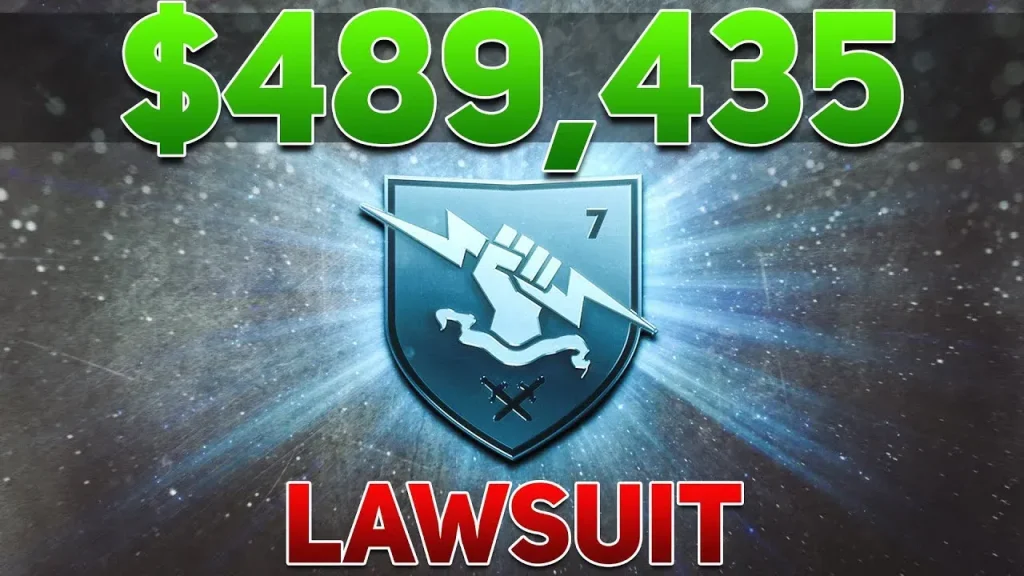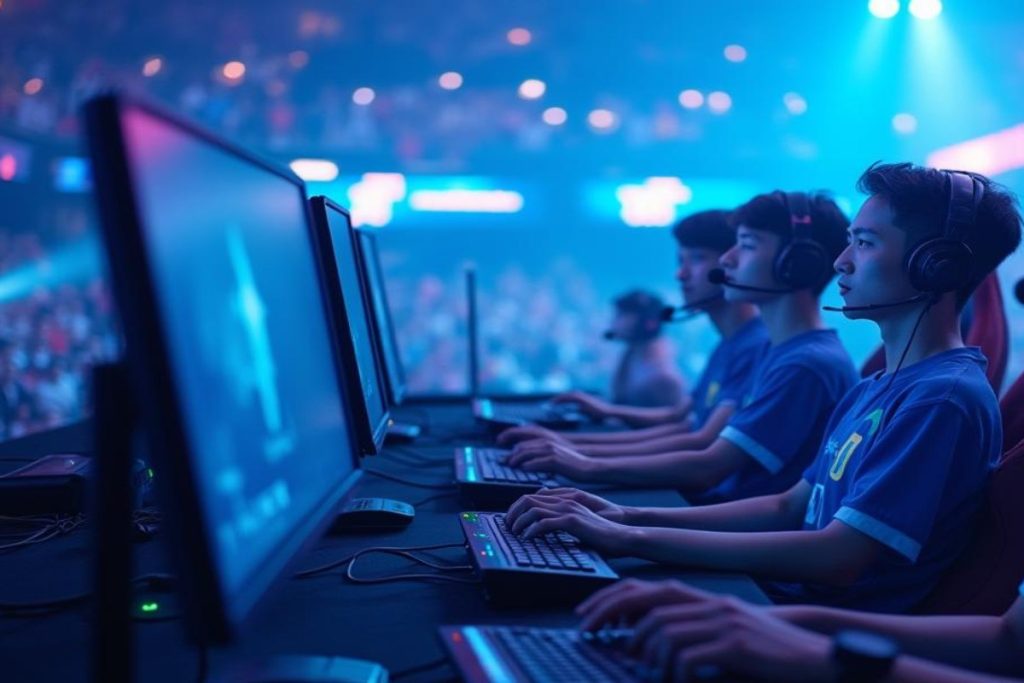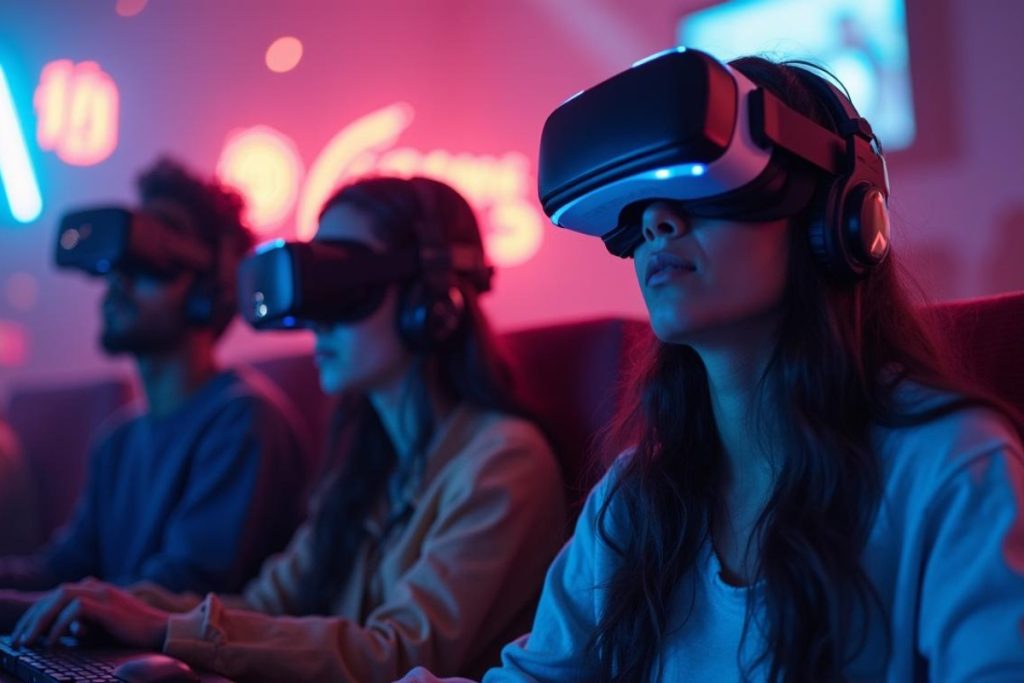The recent Bungie lawsuit has taken center stage as a US federal judge has ruled that the case alleging plagiarism in *Destiny 2* should proceed. This claim asserts that Bungie borrowed elements from a sci-fi story published online during *Destiny 2*’s development, a revelation that has drawn significant attention. Despite Bungie’s efforts to dismiss the case, the court found that the evidence provided thus far, including references to fan-generated content, was inadequate. In light of Bungie’s removal of previous campaign content into the controversial *Destiny 2* content vault, the stakes are high. As scrutiny increases around this Bungie court case, the developer may need to brace for the implications surrounding its creative decisions and the fate of *Destiny 2*’s narrative integrity.
In a developing story, a legal challenge against Bungie is raising eyebrows within the gaming community, particularly regarding accusations of borrowing narrative elements from an external sci-fi work. This ongoing litigation has arisen from claims that Bungie, the creative force behind *Destiny 2*, may have drawn inspiration from a storyline featuring an antagonistic force during the game’s production. The lawsuit has not only placed Bungie on the defensive but also cast a spotlight on the company’s controversial practice of content removal, as many older features are now relegated to what players have dubbed the *Destiny 2* content vault. Questions will inevitably arise about authenticity and originality in the gaming industry, especially as the Bungie court case unfolds. Meanwhile, fans of the franchise watch closely, eager to see how this might affect their beloved game and its evolving storylines.
Overview of the Bungie Lawsuit
The ongoing Bungie lawsuit centers on serious allegations that the developer of Destiny 2 plagiarized key elements from a science fiction story written by Matthew Kelsey Martineau. As this lawsuit unfolds in federal court, it fundamentally challenges Bungie’s creative integrity and raises questions about copyright infringement in the gaming industry. Judge Susie Morgan’s recent ruling ensures the case will proceed, expressing skepticism towards Bungie’s stated inability to produce original forms of Destiny 2 for review. Instead, the court was presented with secondary evidence, which lacks the weight and immediacy of direct gameplay, underscoring the complexity of the situation.
The implications of this lawsuit extend beyond just legal ramifications. They touch on the very essence of ownership and originality in game development. If the allegations are proven true, it could lead to a major precedent for other game studios, potentially affecting how games are developed and how stories are integrated into gameplay. As players await the outcome of this lawsuit, the discussion surrounding intellectual property rights in video games has never been more pertinent.
Impact of Bungie’s Content Removal
Bungie’s decision to implement a “content vault” in Destiny 2 has not only incited fan outrage but has also become a critical point in the ongoing lawsuit. By removing significant amounts of content, including key narratives and expansions like the Red War and Forsaken, Bungie has complicated its defense. The lack of access to original campaign content, which players and the court cannot review directly, raises questions about the limitations placed on Bungie’s ability to provide a robust defense against the plagiarism claims.
This strategy of removing content under the guise of game management has been met with mixed reactions from the gaming community. While Bungie argues that the content vault is necessary to maintain game performance, players lament the loss of their favorite expansions and storylines. The exposed vulnerabilities of Bungie’s content management approach are magnified by the current lawsuit, prompting a deeper examination of how developers balance content preservation against technological constraints.
Destiny 2’s Plagiarism Allegations
At the heart of the Bungie lawsuit lies the accusation of plagiarism concerning elements within Destiny 2’s narrative framework. The plaintiff asserts that key story motifs, such as the Red Legion and their invasion tactics, closely mirror his original work published online. This overlap raises significant ethical and legal questions regarding the originality of Bungie’s storytelling. If proven that Bungie copied thematic elements without proper attribution or inspiration, it could have far-reaching consequences not only for Bungie but for the gaming industry as a whole.
As the lawsuit progresses, the scrutiny around how narratives are penned in games like Destiny 2 highlights a potential crisis in creativity and novelty in the industry. Critics argue that if one studio is found guilty of relying too heavily on external sources without due credit, it could establish a precedent that forces all gaming companies to reassess their content development practices. Bungie must navigate these choppy waters carefully to avoid a judgment that could redefine industry standards.
The Role of the Red Legion in the Lawsuit
The Red Legion’s portrayal in both Bungie’s Destiny 2 and Martineau’s original work stands as a linchpin in the ongoing legal dispute. The allegations focus on striking similarities, particularly in the themes of invasion and the depiction of an antagonistic force. This direct comparison not only makes the lawsuit particularly contentious but also invites commentary on the broader tropes and archetypes often found in science fiction narratives. The specificity of the Red Legion’s characteristics, such as attacks using flamethrowers and the goal of seizing celestial entities, adds weight to Martineau’s claims.
As the case develops, the entwinement of these narratives forces both parties to confront the complexities of inspiration versus imitation. While many developers craft stories framed around similar epic battles and dangerous adversaries, this case calls into question where the line between homage and plagiarism is drawn. The outcome could potentially provide clarity on how closely themes can align before they venture into legally questionable territory.
Bungie’s Defense Strategy in Court
In response to the allegations, Bungie aims to utilize a multifaceted defense strategy that hinges on their inability to access the original content needed for an effective rebuttal. As outlined by Judge Morgan, Bungie’s failure to produce gameplay from Destiny 2 leaves its case vulnerable. The reliance on alternative evidence, such as YouTube videos and fan Wiki pages, suggests an inherent weakness in their narrative surrounding content removal and its necessity for game maintenance.
This defense approach not only highlights potential internal shortcomings but also invites scrutiny from the community regarding Bungie’s transparency and decision-making processes. The developer’s challenge now lies in convincingly articulating why certain content had to be vaulted, particularly when such actions have hindered their capability to counter claims in court regarding original game elements.
Community Reactions to the Lawsuit
The response from the Destiny 2 community to the lawsuit and Bungie’s actions has been overwhelmingly mixed; many fans express discontent over the content vault while others exhibit apprehension about the implications of the lawsuit itself. Players have taken to social media and forums, sharing their views on how Bungie has handled story elements and expansions. Some believe the lawsuit could ultimately lead to greater accountability in the creative processes of game design, fostering a more transparent relationship between developers and their audiences.
Conversely, there are concerns about the potential backlash against Bungie if the lawsuit results in a judgment against them. Fans fear that undesirable consequences might lead to further content removal and cement a culture of fear around creative storytelling. The community remains divided, debating whether this legal confrontation is a necessary evil or if it threatens the very foundation of what video games represent as a medium for storytelling.
The Future of Bungie’s Content Management
As Bungie stands at a crossroads between ongoing litigation and community expectations, the future of its content management strategy is increasingly uncertain. The outcomes of the lawsuit could compel Bungie to reevaluate its approach, especially concerning the content vault which has drawn ire from many within the gaming community. The necessity for transparency and player engagement has never been more pressing, as the developer seeks to navigate the convoluted landscape of creative ownership.
Future projects, including the anticipated launch of Marathon, may also be influenced by the fallout of the current lawsuit. Should Bungie need to adjust its narrative development practices or provide justifications for content management, the strategies employed in upcoming releases could shift significantly. Ultimately, how Bungie addresses these challenges will not only dictate the trajectory of its intellectual properties but also redefine its relationship with its passionate player base.
Legal Precedents for the Gaming Industry
As the Bungie lawsuit unfolds, it opens a broader conversation regarding legal precedents within the gaming industry, especially concerning allegations of plagiarism and copyright infringement. The outcomes of high-profile cases can set benchmarks for future disputes, impacting how stories and characters are created and represented in games. Legal clarity may arise from this case, shaping how studios manage their creative processes while respecting the intellectual property rights of others.
Win or lose, Bungie’s case could serve as a landmark for defining and navigating the boundaries of creative expression in video game development. As developers grappling with similar issues look to this case, the gaming industry at large could witness shifts in policy and practice that prioritize ethical storytelling while maintaining creative independence.
Anticipation for Destiny 2’s Upcoming Year
Despite the ongoing turmoil surrounding the Bungie lawsuit, anticipation remains high for the future of Destiny 2. With the release of The Final Shape expansion last summer, players are eager to see what new content and announcements Bungie will introduce in the upcoming year. Scheduled livestreams are geared towards unveiling fresh gameplay, storytelling elements, and engagement strategies that reflect the community’s desires.
As Bungie prepares to showcase its plans, the juxtaposition of community concerns over the lawsuit with the excitement for new content creates a unique atmosphere. Players are hoping for assurances that their voices are being heard, and that Bungie’s upcoming initiatives will take into consideration the lessons learned from past mistakes, particularly in terms of transparent communication and content preservation.
Frequently Asked Questions
What is the Bungie lawsuit about?
The Bungie lawsuit revolves around allegations that the company plagiarized elements from a sci-fi story published by Matthew Kelsey Martineau while developing Destiny 2. The lawsuit claims that the game’s depiction of the Red Legion and their invasion of Earth closely resembles Martineau’s original work.
Why hasn’t the Bungie court case been dismissed?
The Bungie court case has not been dismissed because a US federal judge ruled that Bungie did not provide sufficient evidence to dismiss the plagiarism claims. The judge noted that Bungie admitted it could not produce a playable version of the original Destiny 2 campaign for review, which raised concerns about the evidence needed for a complete analysis.
How has Bungie’s content removal affected the lawsuit?
Bungie’s content removal, particularly through the Destiny 2 content vault, has impacted the lawsuit by preventing the court from reviewing crucial elements of the game, such as the original campaigns. This absence of accessible content makes it difficult to analyze potential similarities with the plaintiff’s story.
What elements from Destiny 2 are being scrutinized in the Bungie lawsuit?
The Bungie lawsuit focuses on the portrayal of the Red Legion, an invading military force in Destiny 2 that bears similarities to Martineau’s story, including the use of flamethrowers and a mission to capture a significant celestial object. These narrative parallels are at the core of the plagiarism claims.
What were the consequences of the Bungie content vault decision for players?
The Bungie content vault decision led to the removal of significant portions of Destiny 2, including the original Red War campaign and several expansions. This unpopular move has frustrated players by cutting off access to content they had previously paid for, complicating ongoing legal proceedings related to the game.
What does the Bungie court case mean for the future of Destiny 2?
The ongoing Bungie court case introduces uncertainty regarding the future of Destiny 2. Depending on the outcome, it could influence how the game’s narrative is perceived, as well as impact Bungie’s development strategies and content management as they transition toward new projects like Marathon.
When did Bungie last release major content updates amid the lawsuit?
Despite the ongoing Bungie lawsuit, the company released its climactic expansion, The Final Shape, last summer. This expansion marked the conclusion of a decade-long storyline in Destiny 2, with Bungie continuing to provide updates and content for the game scheduled for livestream announcements.
Who is Matthew Kelsey Martineau in relation to the Bungie lawsuit?
Matthew Kelsey Martineau is a writer who filed the lawsuit against Bungie, claiming that elements of his sci-fi story, which he published online prior to the release of Destiny 2, were plagiarized in the game’s narrative, specifically regarding the Red Legion and their objectives.
What is Bungie’s response to the plagiarism claims in the lawsuit?
Bungie’s response to the plagiarism claims has involved asserting that it has not deliberately copied Martineau’s work and aims to defend itself in court. The company has emphasized the challenges of producing older game content due to its removal from the game.
How has the Bungie lawsuit affected the game’s community and fanbase?
The Bungie lawsuit has sparked dialogue within the gaming community and fanbase about content accessibility, copyright issues, and the impact of the content vault policy. Many players express frustration regarding the removal of content they enjoyed, thereby complicating their relationship with the game.
| Key Points | Details |
|---|---|
| Bungie lawsuit status | A federal judge ruled the lawsuit against Bungie alleging plagiarism should proceed. |
| Lawsuit basis | The lawsuit claims Bungie plagiarized elements from a sci-fi story by Matthew Kelsey Martineau. |
| Judge’s comments | Judge Morgan noted that Bungie could not provide a playable version of the original campaign as evidence. |
| Content removed | Several key campaigns and expansions from Destiny 2, including Red War and Forsaken, were removed. |
| Fan reaction | The removal of game content has been controversial and unpopular among fans. |
| Upcoming events | Bungie is set to unveil new plans for Destiny 2 in an upcoming livestream. |
Summary
The Bungie lawsuit is currently a significant legal matter as the company faces accusations of plagiarism regarding content in Destiny 2. As the case moves forward, it highlights the complexities of copyright and originality in the gaming industry, particularly concerning content that has been removed and is no longer accessible. With Bungie’s history of controversial content decisions and the recent focus on new developments within Destiny 2, this lawsuit could impact the company’s reputation and future projects.



